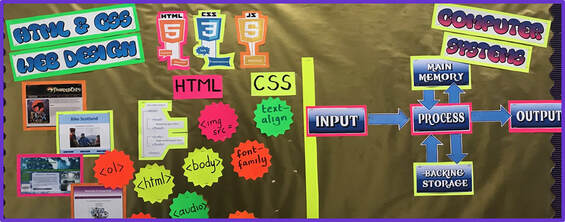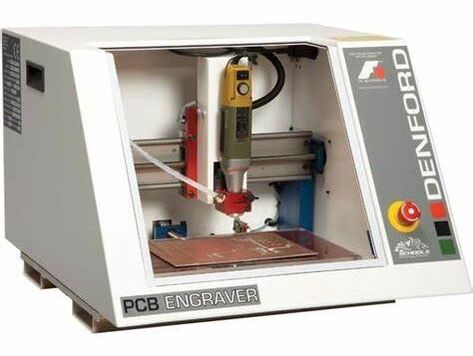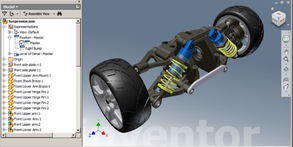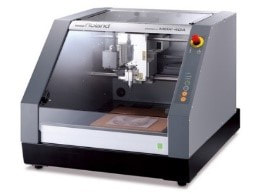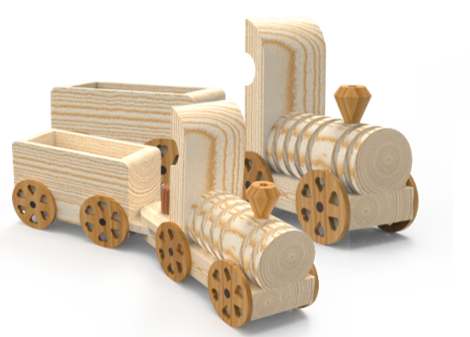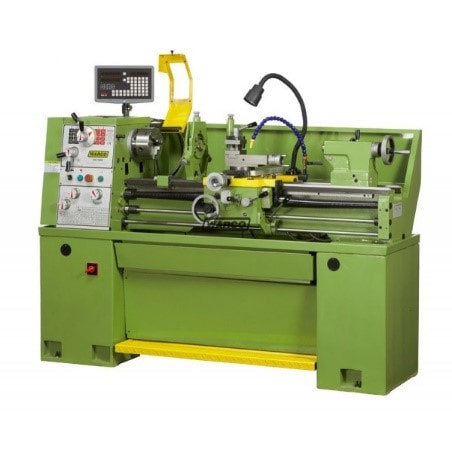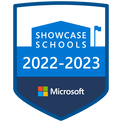S3 Learning Options
S3 Learning Options
Click on the links below to view the subject course descriptor:
Scroll down to read information on each of the Learning Options or use the 'Quick Jump' below
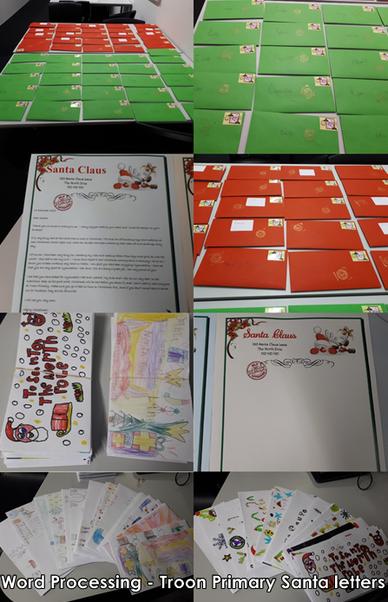
Administration and Events Planning
"Our digital sector contributes around £5.25 billion to the Scottish economy and this is forecast to be the fastest growing sector in Scotland by 2024." (Digital Minister for Scotland Sept 2018)
Administration and IT provides students with key skills that all employers view as essential including: communication, problem solving, organisational and ICT skills. Administration is a growing sector which cuts across the entire economy and offers wide-ranging employment opportunities.
Administration and IT also compliments Business Management and all other subjects by allowing students to develop excellent application of ICT using Microsoft Software including: Access, Excel, Word Processing, PowerPoint and Publisher and Outlook and E Diary.
Throughout the course students will learn:
The course contains a significant practical component, which involves experiential learning and uses real-life contexts, which makes it relevant to the world of work. In terms of progression after S3 Administration is available at National 3, 4, 5 and Higher.
"Our digital sector contributes around £5.25 billion to the Scottish economy and this is forecast to be the fastest growing sector in Scotland by 2024." (Digital Minister for Scotland Sept 2018)
Administration and IT provides students with key skills that all employers view as essential including: communication, problem solving, organisational and ICT skills. Administration is a growing sector which cuts across the entire economy and offers wide-ranging employment opportunities.
Administration and IT also compliments Business Management and all other subjects by allowing students to develop excellent application of ICT using Microsoft Software including: Access, Excel, Word Processing, PowerPoint and Publisher and Outlook and E Diary.
Throughout the course students will learn:
- To use the software listed above in varying business contexts
- An understanding of administration in the workplace and key legislation
- the importance of good customer care
- how to use IT to perform straightforward tasks
- how to organise and support a small-scale event (including meetings)
The course contains a significant practical component, which involves experiential learning and uses real-life contexts, which makes it relevant to the world of work. In terms of progression after S3 Administration is available at National 3, 4, 5 and Higher.
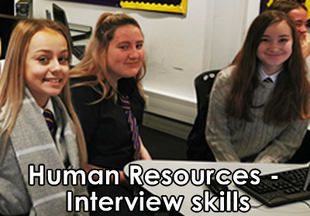
Job Profiles Related to Administration and IT
https://www.myworldofwork.co.uk/search/sitewide/administration?group=job_profile#search-results
Potential Next Steps in Administration from College – University
https://www.myworldofwork.co.uk/learn-and-train/course/search?search=Administration%20&loc=&rad=20
SQA Link
https://www.sqa.org.uk/sqa/45686.html
Why Study Administration and IT?
https://ayrshirecollegeblog.wordpress.com/2016/01/14/10-reasons-why-you-should-study-business-administration/
Growth in Popularity at Degree Level
https://www.ft.com/content/2cc17ae4-fbe4-11e9-a354-36acbbb0d9b6
https://www.myworldofwork.co.uk/search/sitewide/administration?group=job_profile#search-results
Potential Next Steps in Administration from College – University
https://www.myworldofwork.co.uk/learn-and-train/course/search?search=Administration%20&loc=&rad=20
SQA Link
https://www.sqa.org.uk/sqa/45686.html
Why Study Administration and IT?
https://ayrshirecollegeblog.wordpress.com/2016/01/14/10-reasons-why-you-should-study-business-administration/
Growth in Popularity at Degree Level
https://www.ft.com/content/2cc17ae4-fbe4-11e9-a354-36acbbb0d9b6
Watch the Admin & IT Promo Video
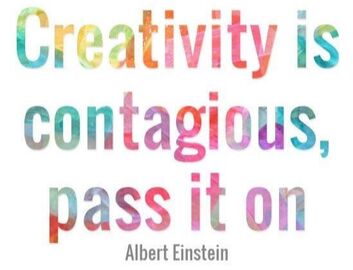
Art & Design
‘Creativity is contagious, pass it on.’ Albert Einstein
The Art and Design department at Marr College offers our learners a programme of study which aims to equip them with the necessary skills and expertise to realise their full creative potential.
The creative industries is the fastest growing sector in the UK, and students who study art and design can leave school ready to embrace the sectors’ (as well as other professional) opportunities.
The art studios provide a supportive environment for interdisciplinary learning and experimentation which fosters creative thinking and problem solving.
The course allows pupils to progress from their prior attainment whilst enabling and supporting further study at National 4 or 5 levels.
‘Creativity is contagious, pass it on.’ Albert Einstein
The Art and Design department at Marr College offers our learners a programme of study which aims to equip them with the necessary skills and expertise to realise their full creative potential.
The creative industries is the fastest growing sector in the UK, and students who study art and design can leave school ready to embrace the sectors’ (as well as other professional) opportunities.
The art studios provide a supportive environment for interdisciplinary learning and experimentation which fosters creative thinking and problem solving.
- Art and Design in S3 at Marr College provides opportunities to develop aesthetic understanding, creativity, visual literacy, knowledge and appreciation.
- The S3 course promotes creative thinking, encourages independent thought, innovation, problem solving and the development of personal opinions. It encourages candidates to use a range of media, both 2D and 3D, and technology to understand, appreciate and respond to their world.
- The Critical Studies element looks at the historical and cultural diversity of art and design in preparation for the creative challenges in society.
The course allows pupils to progress from their prior attainment whilst enabling and supporting further study at National 4 or 5 levels.
Biology
Biology is always in the news! Studying it can take you in almost any direction you can think of, and to almost anywhere on earth. From medicine to tv / radio broadcasting, biology is one of the most important subjects in the world today! From the world of plants right down to the cells inside our body, the s3 course aims to take learners on a journey through the biological world learning some fascinating information and skills as we go.
The topics covered in the S3 Biology course look at some of these issues:
Within each topic, there will be many opportunities for learners to develop their numeracy, literacy and practical skills and they will also have the opportunity to debate the social, moral and ethical issues associated with some of the more controversial biological procedures, such as GM and DNA technologies and the use of stem cells.
The S3 Biology course will enable students to progress to National 3, 4 & 5 courses in S4, with the possibility of future careers in science and in technology.
Biology is always in the news! Studying it can take you in almost any direction you can think of, and to almost anywhere on earth. From medicine to tv / radio broadcasting, biology is one of the most important subjects in the world today! From the world of plants right down to the cells inside our body, the s3 course aims to take learners on a journey through the biological world learning some fascinating information and skills as we go.
The topics covered in the S3 Biology course look at some of these issues:
- Biodiversity and Interdependence: Learners continue to develop an understanding of how animal and plant species depend on each other and how living things are adapted for survival.
- Body Systems and Growth: Learners study many different aspects of living things, from how the human body keeps its temperature and blood glucose levels stable, to the effects of disinfectants on micro-organisms, the use of enzymes in industry and how tissues and organs can be transferred from one organism to another.
- Cells and Inheritance: Learners are invited to consider how genetic information is stored in cells in DNA, genes and chromosomes, and how DNA characteristics are passed on from one generation to the next.
Within each topic, there will be many opportunities for learners to develop their numeracy, literacy and practical skills and they will also have the opportunity to debate the social, moral and ethical issues associated with some of the more controversial biological procedures, such as GM and DNA technologies and the use of stem cells.
The S3 Biology course will enable students to progress to National 3, 4 & 5 courses in S4, with the possibility of future careers in science and in technology.
Watch the Biology Promo Video
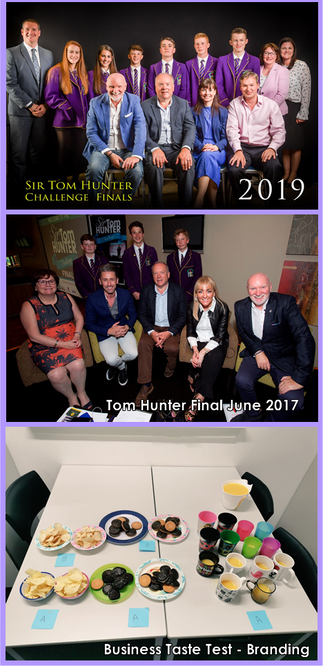
Business Management
Business Management provides students with the knowledge and skills necessary to adapt to change and survive in this ever changing world of work. Students will be given the opportunity to develop their entrepreneurial skills as well as develop their leadership, teambuilding, decision-making, motivation and communication. This will allow the students to utilise their business skills and qualities to become more actively involved in society. Currently thanks to post study employment opportunities and the wide range of courses available Business degrees are the most popular courses to study.
Throughout this course students will:
Throughout this course we use teacher-led discussion, cooperative group work and many formative assessment strategies to give pupils the opportunity to demonstrate and improve their knowledge, practical skills and skills for learning, life and work.
In terms of progression after S3, Business is available to study at National 3, National 4, National 5 and Higher.
Business Management provides students with the knowledge and skills necessary to adapt to change and survive in this ever changing world of work. Students will be given the opportunity to develop their entrepreneurial skills as well as develop their leadership, teambuilding, decision-making, motivation and communication. This will allow the students to utilise their business skills and qualities to become more actively involved in society. Currently thanks to post study employment opportunities and the wide range of courses available Business degrees are the most popular courses to study.
Throughout this course students will:
- Take part in realistic business activities which will challenge, motivate and inspire them: Creation of Business Plans, CVs and Mock Interviews, DYW, ‘Sir Tom Hunter Challenge’ and many more hands on techniques and experiences
- Study Business Start-up: How small, medium and large businesses are created, how they make future decisions and pursue their goals as well as having successful internal and external environments
- Study Management of Marketing: Branding, Market Research, Market Mix
- Study Management of Operations: Methods of Production, Quality
- Study Management of People: Recruitment and Selection
Throughout this course we use teacher-led discussion, cooperative group work and many formative assessment strategies to give pupils the opportunity to demonstrate and improve their knowledge, practical skills and skills for learning, life and work.
In terms of progression after S3, Business is available to study at National 3, National 4, National 5 and Higher.
Chemistry
In S3, students will study Level 4 Science Experiences and Outcomes related to Chemistry.
They will build on the topics: Acids and Bases; Matter; Elements and Chemical Reactions which were studied in S1 and 2. Students will be given access to a wide range of experiences which will encourage and sustain student’s natural curiosity.
Students will further develop their skills in the following areas: Atomic Structure; Chemical Reactions; Metals; Cells and Batteries; Carbon Chemistry; Pollution and what’s new in the material world.
In addition, learners will develop the following skills: Chemistry’s role in society; Inquiry and investigative skills; Analytical thinking skills; Practical skills; Problem solving skills.
Completion of the S3 course will enable students to work towards National 3, 4 and 5, accredited courses in S4 and beyond.
In S3, students will study Level 4 Science Experiences and Outcomes related to Chemistry.
They will build on the topics: Acids and Bases; Matter; Elements and Chemical Reactions which were studied in S1 and 2. Students will be given access to a wide range of experiences which will encourage and sustain student’s natural curiosity.
Students will further develop their skills in the following areas: Atomic Structure; Chemical Reactions; Metals; Cells and Batteries; Carbon Chemistry; Pollution and what’s new in the material world.
In addition, learners will develop the following skills: Chemistry’s role in society; Inquiry and investigative skills; Analytical thinking skills; Practical skills; Problem solving skills.
Completion of the S3 course will enable students to work towards National 3, 4 and 5, accredited courses in S4 and beyond.
Watch the Chemistry Promo Video

Computing Science
Computing Science is one of the most exciting and rapidly-changing areas of study in our school curriculum today. Whether you want to learn how to build a smartphone application, create your own computer game, design your own website or simply become digitally-literate with experience of using the latest versions of software applications and online learning tools.
Our philosophy is simple: computers are fun, essential for learning, life and work, and students really enjoy learning about them!
Computing Science is one of the most exciting and rapidly-changing areas of study in our school curriculum today. Whether you want to learn how to build a smartphone application, create your own computer game, design your own website or simply become digitally-literate with experience of using the latest versions of software applications and online learning tools.
Our philosophy is simple: computers are fun, essential for learning, life and work, and students really enjoy learning about them!
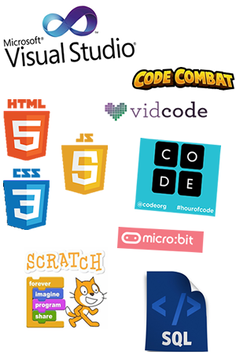
Students will extend their skills, knowledge, and understanding in:
- Coding. Learn how to build software applications for personal computers and mobile devices. Design and create your own computer games complete with characters, scenarios and levels. Gain experience of software development environments including Scratch, Visual Basic and Game Maker.
- Computer Systems. Extend your awareness of the latest developments in personal computers and mobile devices including operating systems and software. Develop a strong working knowledge of a wide range of hardware components including powerful multi-core processors and graphics cards for gaming platforms. Further your understanding of binary representation and how the computer fetches, decodes and executes your commands.
- Information systems. Create interactive multimedia applications that incorporate graphic design, animation, sound and video. Work both independently and as part of a team to develop your own databases and websites using HTML, CSS, Javascript and PHP. Learn how to build digital solutions including designing and developing an interactive website to meet a required specification.
- Digital Literacy. Develop and extend your skills and experience in the latest software applications to become highly proficient in using Microsoft Word, Excel, PowerPoint and Access. Experience other web-based ICT technologies and learn how to use the Internet responsibly and stay safe when online.
|
All our students will have opportunities to develop and strengthen their literacy and numeracy skills along with greater awareness of their own health and wellbeing and the impact of technologies on the environment. Our students are also supported by e-learning through GLOW and Microsoft OneNote where they have their own e-jotter and personal learning e-portfolio online.
Our S3 course is designed to provide learning experiences and outcomes at third and fourth levels of Curriculum for Excellence. It secures a pathway to National 3, 4 and 5 Computing Science, Games Development and Cyber Security qualifications in S4, with progression to Higher and Advanced Higher in S5/6. |
Watch the Computer Science Promo Video
|
Design Engineer Construct

Want to learn skills in designing, engineering and constructing?
Our exciting new course Design Engineer Construct allows young people to learn and discover unique pathways into architecture, engineering and construction careers whilst developing the knowledge and skills needed for the world of work.
What will you learn?
Our exciting new course Design Engineer Construct allows young people to learn and discover unique pathways into architecture, engineering and construction careers whilst developing the knowledge and skills needed for the world of work.
What will you learn?
- To explore the digital Built Environment using industry standard software
- Use Autodesk Revit to design and construct buildings and spaces
- Skills in planning and civil engineering
- How to take these skills beyond the classroom onto site visits during the year
- About careers in architecture, engineering and construction
How is the course assessed?
See https://designengineerconstruct.com/qualifications/ for more information.
SCQF Level 5
This course awards is equivalent to National 5 level and you will develop skills in using Autodesk Revit to design and construct buildings as outlined in a design brief. As you progress through the programme, you will develop advanced digital skills using industry standard modelling and analysis software for building and infrastructure design. The course assessment is 100% portfolio work which is marked both internally and externally for verification purposes.
Our exciting new course Design Engineer Construct enables you to develop essential hands-on knowledge and skills and also gain experience in the world of architecture, engineering and construction careers.
The course provides the opportunity for pupils to explore the digital ‘Built Environment’ using industry standard software, such as Autodesk Revit, whilst completing a series of challenges that take your learning out of the classroom.
- You will create a portfolio of your work
- There is no final exam – your coursework is marked internally and externally and makes up 100% of your award
See https://designengineerconstruct.com/qualifications/ for more information.
SCQF Level 5
This course awards is equivalent to National 5 level and you will develop skills in using Autodesk Revit to design and construct buildings as outlined in a design brief. As you progress through the programme, you will develop advanced digital skills using industry standard modelling and analysis software for building and infrastructure design. The course assessment is 100% portfolio work which is marked both internally and externally for verification purposes.
Our exciting new course Design Engineer Construct enables you to develop essential hands-on knowledge and skills and also gain experience in the world of architecture, engineering and construction careers.
The course provides the opportunity for pupils to explore the digital ‘Built Environment’ using industry standard software, such as Autodesk Revit, whilst completing a series of challenges that take your learning out of the classroom.
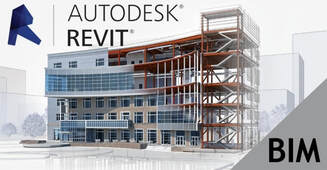
Throughout the year you will progress through a number of DEC Awards. These are small projects that immerse young people in the exciting world of the Built Environment – you will learn to design, engineer and construct a range of buildings and structures such as restaurants, hotels and even live music venues. You can even design a new village school in Africa or create your own ‘Centre for Our Planet’.
One of the great features of this course is that you will work with local design and construction companies who will support and guide you through some of the projects. This will involve visits to sites, outdoor work to plan your designs and using Avantis VR Headsets to take your creations into the virtual world.
For more information visit https://designengineerconstruct.com/dec-awards/
DEC Awards provide a great foundation to prepare for the Design Engineer Construct course at SCQF Level 5 (National 5) in S4 and build your skills towards Level 6 (Higher) and beyond.
One of the great features of this course is that you will work with local design and construction companies who will support and guide you through some of the projects. This will involve visits to sites, outdoor work to plan your designs and using Avantis VR Headsets to take your creations into the virtual world.
For more information visit https://designengineerconstruct.com/dec-awards/
DEC Awards provide a great foundation to prepare for the Design Engineer Construct course at SCQF Level 5 (National 5) in S4 and build your skills towards Level 6 (Higher) and beyond.
Geography
In S3, students will focus on three main areas:
Each of these topics has clear links to students learning in S1 and S2 and will provide more depth and a variety of different contexts through which to build their geographical understanding.
Some examples of learning activities are: a day’s fieldwork to Culzean Country Park to develop enquiry skills and ensure relevance of students learning; interactive games and simulations to develop planning and creativity; understanding of real life development situations; modelling to enhance students’ ability to link landscapes.
Learners, where possible, will use technology and a variety of individual, paired and group activities, as well as current case study material to enthuse and engage in developing as citizens of the world around them. Completion of the S3 course will enable students to work towards National 3, 4 and 5, accredited courses.
In S3, students will focus on three main areas:
- Physical Environments
- Human Environments
- Global Issues
Each of these topics has clear links to students learning in S1 and S2 and will provide more depth and a variety of different contexts through which to build their geographical understanding.
Some examples of learning activities are: a day’s fieldwork to Culzean Country Park to develop enquiry skills and ensure relevance of students learning; interactive games and simulations to develop planning and creativity; understanding of real life development situations; modelling to enhance students’ ability to link landscapes.
Learners, where possible, will use technology and a variety of individual, paired and group activities, as well as current case study material to enthuse and engage in developing as citizens of the world around them. Completion of the S3 course will enable students to work towards National 3, 4 and 5, accredited courses.
Watch the Geography Promo Video
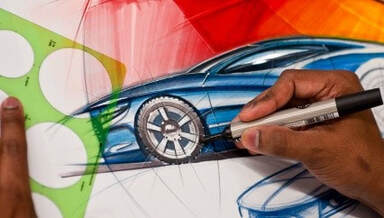
Graphic Communication
The aims of the S3 Graphic Communication Course are to develop students’ skills to give a foundation on which they are able to progress towards National 5 & Higher Awards in Graphic Communication. Graphic Communication is an ideal subject for anyone with a potential interest in architecture, engineering, multimedia, animation, industrial design, marketing, journalism etc. and is an approved subject for entry at all Scottish colleges and universities.
The aims of the S3 Graphic Communication Course are to develop students’ skills to give a foundation on which they are able to progress towards National 5 & Higher Awards in Graphic Communication. Graphic Communication is an ideal subject for anyone with a potential interest in architecture, engineering, multimedia, animation, industrial design, marketing, journalism etc. and is an approved subject for entry at all Scottish colleges and universities.
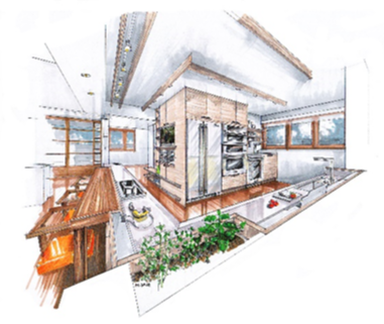
The S3 course focusses on the following projects/areas
Architecture project – Students use Homestyler & Autodesk Revit architectural modelling software (the same software used to design Marr College) to design and model a building of the students own choice. Students will produce a 3D model, then render and animate to produce high quality graphics.
- Manual drawing board skills.
- Sketching, Marker pen, pencil & pastel rendering skills.
- 3D modelling.
- Computer rendering.
- CAD/CAM software to design and laser cut projects
- Desk Top Publishing.
Architecture project – Students use Homestyler & Autodesk Revit architectural modelling software (the same software used to design Marr College) to design and model a building of the students own choice. Students will produce a 3D model, then render and animate to produce high quality graphics.
Career opportunities:
Health & Food Technology
Food Technology in the context of Health & Food Technology provides opportunities ‘to address people’s needs and wants for food, clothing and health care’ (Scottish CCC), through experimental, practical and problem solving approach to learning and to develop knowledge, understanding and practical skills. The course uses real life situations taking account of local, cultural, media influences and technological innovations.
The course aims to develop practical and technological skills and knowledge and understanding to make informed food and consumer choices.
The course will enable students to:
Food Technology in the context of Health & Food Technology provides opportunities ‘to address people’s needs and wants for food, clothing and health care’ (Scottish CCC), through experimental, practical and problem solving approach to learning and to develop knowledge, understanding and practical skills. The course uses real life situations taking account of local, cultural, media influences and technological innovations.
The course aims to develop practical and technological skills and knowledge and understanding to make informed food and consumer choices.
The course will enable students to:
- Develop knowledge of the relationships between health, food and nutrition
- Develop knowledge of the functional properties of food.
- Make informed food and consumer choices
- Develop the skills to apply their knowledge in practical contexts
- Develop organizational and technological skills to make food products.
- Develop safe and hygienic practices in practical food preparation.
Watch the Home Economics Promo Video
History
History opens up the world of the past for learners. Through the window on the past, it provides us with insights into our own lives and of the society and the wider world in which we live.
In History you have the chance to learn about the major developments which have shaped our society throughout time by looking at Scottish, British, and European and World History in Medieval, Early Modern and Modern time frames.
You can expect to examine themes such as: authority, belief, conflict, conquest, identity, and power and find out about events such as: World War 1&2; the Atlantic Slave Trade and Civil Rights movement in the USA; the Scottish Wars of Independence; and the Crusades. The course consists of a wide variety of activities and multi-media resources that will help you develop all the necessary knowledge and skills you need to succeed in History and beyond.
The S3 History course will enable learners to progress to National 3, 4 and 5 courses in S4 and opens up a world of career possibilities.
For more information on careers see: https://www.prospects.ac.uk/careers-advice/what-can-i-do-with-my-degree/history
History opens up the world of the past for learners. Through the window on the past, it provides us with insights into our own lives and of the society and the wider world in which we live.
In History you have the chance to learn about the major developments which have shaped our society throughout time by looking at Scottish, British, and European and World History in Medieval, Early Modern and Modern time frames.
You can expect to examine themes such as: authority, belief, conflict, conquest, identity, and power and find out about events such as: World War 1&2; the Atlantic Slave Trade and Civil Rights movement in the USA; the Scottish Wars of Independence; and the Crusades. The course consists of a wide variety of activities and multi-media resources that will help you develop all the necessary knowledge and skills you need to succeed in History and beyond.
The S3 History course will enable learners to progress to National 3, 4 and 5 courses in S4 and opens up a world of career possibilities.
For more information on careers see: https://www.prospects.ac.uk/careers-advice/what-can-i-do-with-my-degree/history
Watch the History Promo Video
Hospitality
In S3, learners will study 3 sections in preparation for progression to National 4 and National 5 in Hospitality Practical Cookery in S4 and beyond.
Cookery Skills: Processes and Techniques
Learners will develop cookery skills, food preparation techniques and the ability to follow cookery processes in the context of simple food preparation and cooking. The Unit also develops learners’ basic understanding of the importance of safety and the ability to work safely and hygienically.
Understanding and Using Ingredients
Learners will develop basic knowledge and understanding of the categories, uses and sourcing of ingredients, including sustainability and a basic ability to select and use ingredients in the preparation of simple dishes and to do so safely and hygienically.
Organisational Skills for Cooking
Students will develop basic planning, organisational and time management skills in the context of planning and producing simple dishes. Learners will acquire the ability to plan their work and follow the plan, follow simple recipes to prepare simple dishes for specific occasions and work safely and hygienically.
In S3, learners will study 3 sections in preparation for progression to National 4 and National 5 in Hospitality Practical Cookery in S4 and beyond.
Cookery Skills: Processes and Techniques
Learners will develop cookery skills, food preparation techniques and the ability to follow cookery processes in the context of simple food preparation and cooking. The Unit also develops learners’ basic understanding of the importance of safety and the ability to work safely and hygienically.
Understanding and Using Ingredients
Learners will develop basic knowledge and understanding of the categories, uses and sourcing of ingredients, including sustainability and a basic ability to select and use ingredients in the preparation of simple dishes and to do so safely and hygienically.
Organisational Skills for Cooking
Students will develop basic planning, organisational and time management skills in the context of planning and producing simple dishes. Learners will acquire the ability to plan their work and follow the plan, follow simple recipes to prepare simple dishes for specific occasions and work safely and hygienically.
Watch the Home Economics Promo Video
Investigating People and Society
Investigating People and Society combines the necessary skills from a variety of social subject areas including History, Geography, Modern Studies, RMPS and Philosophy. It allows students to develop the essential skills of decision making, investigating and comparing/contrasting. Students will also have the opportunity to develop key ICT and presentation skills.
Students will study the following topics:
Successful completion of this course in S3 allows students to progress to National 4 in Social Subjects in S4.
Investigating People and Society combines the necessary skills from a variety of social subject areas including History, Geography, Modern Studies, RMPS and Philosophy. It allows students to develop the essential skills of decision making, investigating and comparing/contrasting. Students will also have the opportunity to develop key ICT and presentation skills.
Students will study the following topics:
- Comparing and Contrasting: Healthcare in the UK and one other country
- Investigating: The History and development of Medicine
- Making Decisions: Organ Donation
- Student Investigation: Crime in our local area
Successful completion of this course in S3 allows students to progress to National 4 in Social Subjects in S4.
Modern Languages: French and Spanish
The study of languages can be very rewarding. Employers are more than ever looking for employees with language skills and therefore a language can be a definite plus when you are applying for jobs. And often, when you are already learning one language, learning another is easier. Learning a new language opens up a world of new opportunities. If you choose to learn a commonly spoken language, such as Spanish or French you can travel practically anywhere in the world and not have trouble with translations. Learning a new language gives you a greater global understanding of the world we live in.
Learners will experience a variety of content in Modern Languages such as: Nationalities and Countries, Healthy Lifestyles, Travel, School, World of Work, TV & Cinema. These topics will be covered in a variety of teaching styles using realistic contexts and scenarios.
Students will have access to up to date technology and modern resources. Completion of the S3 course will enable students to work towards a National Qualification in S4 as well as alternative accredited courses in the senior phase.
The study of languages can be very rewarding. Employers are more than ever looking for employees with language skills and therefore a language can be a definite plus when you are applying for jobs. And often, when you are already learning one language, learning another is easier. Learning a new language opens up a world of new opportunities. If you choose to learn a commonly spoken language, such as Spanish or French you can travel practically anywhere in the world and not have trouble with translations. Learning a new language gives you a greater global understanding of the world we live in.
Learners will experience a variety of content in Modern Languages such as: Nationalities and Countries, Healthy Lifestyles, Travel, School, World of Work, TV & Cinema. These topics will be covered in a variety of teaching styles using realistic contexts and scenarios.
Students will have access to up to date technology and modern resources. Completion of the S3 course will enable students to work towards a National Qualification in S4 as well as alternative accredited courses in the senior phase.
Watch the Modern Languages Promo Video
Modern Studies
The world is a rapidly changing place and nowhere is the ‘Global Village’ more keenly explored than in Modern Studies.
Modern Studies follows an interdisciplinary approach to understand contemporary political and social issues in Local, Scottish, UK, and International contexts. Issues such as Social Inequality; Crime and the Law; Poverty; Human Rights; Health; the Media; and Immigration amongst others can all be covered. In an ever changing world, Modern Studies responds so that students are better prepared for their future.
The course consists of a wide variety of activities and multi-media resources that will help you develop all the necessary knowledge and skills you need to succeed in Modern Studies and beyond. You will develop the skills necessary to interpret and participate in the Social and Political world we live in.
The S3 Modern Studies course will enable learners to progress to National 3, 4 and 5 courses in S4 and opens up a world of career possibilities.
For more information on careers see: https://www.planitplus.net/Schools/SubjectCareerList?mysubject=Modern%20Studies
The world is a rapidly changing place and nowhere is the ‘Global Village’ more keenly explored than in Modern Studies.
Modern Studies follows an interdisciplinary approach to understand contemporary political and social issues in Local, Scottish, UK, and International contexts. Issues such as Social Inequality; Crime and the Law; Poverty; Human Rights; Health; the Media; and Immigration amongst others can all be covered. In an ever changing world, Modern Studies responds so that students are better prepared for their future.
The course consists of a wide variety of activities and multi-media resources that will help you develop all the necessary knowledge and skills you need to succeed in Modern Studies and beyond. You will develop the skills necessary to interpret and participate in the Social and Political world we live in.
The S3 Modern Studies course will enable learners to progress to National 3, 4 and 5 courses in S4 and opens up a world of career possibilities.
For more information on careers see: https://www.planitplus.net/Schools/SubjectCareerList?mysubject=Modern%20Studies
Watch the Modern Studies Promo Video
Music Performance
Music is fundamental to our modern lives, whether as part of our download culture, our enjoyment of film and TV, or even as part of the advertising which nourishes our commercial lives. Studies have shown that acquiring music skills at an early age improves intellectual ability across subjects. Music has much to offer!
We will be concentrating on instrumental playing, offering a wide variety of songs and styles for the two instruments students will choose to specialise in. Students will gains skills in self-expression through composing and performing, and in understanding by listening to a variety of musical styles. We will be performing in groups of different sizes, and we’ll take in some solo and recording work along the way.
Skills offered by the course include independent thinking and study skills, with an emphasis on self-awareness and positive critical thinking. The homework we shall be expecting is practice on the music encountered in the course – about 20 minutes per night.
Music is fundamental to our modern lives, whether as part of our download culture, our enjoyment of film and TV, or even as part of the advertising which nourishes our commercial lives. Studies have shown that acquiring music skills at an early age improves intellectual ability across subjects. Music has much to offer!
We will be concentrating on instrumental playing, offering a wide variety of songs and styles for the two instruments students will choose to specialise in. Students will gains skills in self-expression through composing and performing, and in understanding by listening to a variety of musical styles. We will be performing in groups of different sizes, and we’ll take in some solo and recording work along the way.
Skills offered by the course include independent thinking and study skills, with an emphasis on self-awareness and positive critical thinking. The homework we shall be expecting is practice on the music encountered in the course – about 20 minutes per night.
Watch the Music Promo Video
Physical Education
Our S3 elective course is designed to give pupils the experiences and skills necessary to follow a senior pathway in Physical Education qualifications. Students who complete this course successfully will be open to National Qualifications and Skills for Work courses in the senior phase.
Our S3 elective course is designed to give pupils the experiences and skills necessary to follow a senior pathway in Physical Education qualifications. Students who complete this course successfully will be open to National Qualifications and Skills for Work courses in the senior phase.
- Learners who chose the elective course will experience;
- Developing an understanding of the Mental, Emotional, Social and Physical Factors which impact on performance in all activities.
- Gathering information on individual and team performance
- Identifying areas of strength and development in performance
- Planning and implementing approaches to improve performance
- Monitoring and evaluating performance improvement
- Developing and refining practical performance across a range of activities to a high standard
- Developing skills for work in leading and supporting others through planning and delivering short teaching episodes and performance events.
|
Activities
The S3 course is taught through the following activities;
Suitable Candidates Our S3 elective course is suitable for any pupil who is passionate about, and committed to sport and health and wellbeing. Pupils will be required to show determination and motivation and should enjoy participating in a wide variety of activities and embrace the challenge that improving both practical and theoretical performance brings on a period by period basis. |
Watch the Physical Education
Promo Video |
Physics
Check out our new options presentation which includes a link to the wide variety of exciting, rewarding and well-paid careers that physics can offer!
https://sway.office.com/qA53A0m9SYR9erkP?ref=Link
Overview
Physics is an exciting and fascinating subject – and gives learners an insight into the underlying nature of our world and its place in the universe. From the sources of energy we use, to the exploration of space, physics explores a range of applications and the relationships that have been discovered through experimentation, theory and calculation - including those used in modern technology. Advances in physics mean that our view of what is possible is continually being updated. In S1 & 2 learners have studied physics through Energy, Forces, Light and the Electromagnetic Spectrum, Electricity, Heat and Space, and their STEM projects.
The main aims of the S3 Physics course are for learners to:
Learners engage with an interesting variety of practical, investigative and written work, incorporating use of ICT for data analysis and presentation of research/investigation findings.
The S3 cohort come together for the Ashfield Music Festival – a one day off-timetable activity in which students develop skills in enterprise and learn how physics applies in the context of setting up a music festival by taking on one of six roles: project manager, health and safety advisor, construction manager, electrical engineer, sound engineer or lighting engineer, supported by STEM Ambassador “Experts” from local companies and universities.
The S3 Physics course will enable learners to progress to National 3, 4 and 5 courses in S4, with the possibility of future careers in the sciences and technologies.
Check out our new options presentation which includes a link to the wide variety of exciting, rewarding and well-paid careers that physics can offer!
https://sway.office.com/qA53A0m9SYR9erkP?ref=Link
Overview
Physics is an exciting and fascinating subject – and gives learners an insight into the underlying nature of our world and its place in the universe. From the sources of energy we use, to the exploration of space, physics explores a range of applications and the relationships that have been discovered through experimentation, theory and calculation - including those used in modern technology. Advances in physics mean that our view of what is possible is continually being updated. In S1 & 2 learners have studied physics through Energy, Forces, Light and the Electromagnetic Spectrum, Electricity, Heat and Space, and their STEM projects.
The main aims of the S3 Physics course are for learners to:
- develop scientific, analytical thinking and problem-solving skills in a physics context
- develop an understanding of the role of physics in scientific issues
- acquire and apply knowledge and understanding of concepts in physics
- develop understanding of relevant applications of physics in society
Learners engage with an interesting variety of practical, investigative and written work, incorporating use of ICT for data analysis and presentation of research/investigation findings.
- In Waves and Radiation, learners study the physics of waves via practical investigations and demonstrations. They also learn about radioactivity and the pros and cons of nuclear power.
- In Dynamics and Space, learners study the physics of motion including Newton’s Laws via practical investigations and research. They also find out more about our solar system, galaxies and explore the possibility of life on exoplanets.
- In Electricity and Energy, learners conduct a variety of investigations into the physics of electric circuits, including Ohm’s Law. They also research and investigate how electricity is generated, and learn about the physics of gases.
The S3 cohort come together for the Ashfield Music Festival – a one day off-timetable activity in which students develop skills in enterprise and learn how physics applies in the context of setting up a music festival by taking on one of six roles: project manager, health and safety advisor, construction manager, electrical engineer, sound engineer or lighting engineer, supported by STEM Ambassador “Experts” from local companies and universities.
The S3 Physics course will enable learners to progress to National 3, 4 and 5 courses in S4, with the possibility of future careers in the sciences and technologies.
Watch the Physics Promo Video

Practical Woodwork & Metalwork
The Course is practical, exploratory and experiential in nature. It combines elements of technique and standard practice with elements of creativity. The Course allows learners to engage with technologies. It allows learners to use a variety of tools, equipment and materials. It also helps learners develop practical skills in numeracy.
The Course is practical, exploratory and experiential in nature. It combines elements of technique and standard practice with elements of creativity. The Course allows learners to engage with technologies. It allows learners to use a variety of tools, equipment and materials. It also helps learners develop practical skills in numeracy.
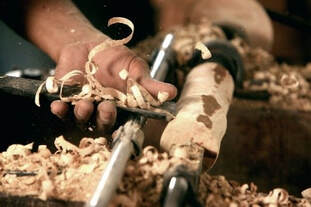
The aims of the Course are to enable learners to develop:
Candidates MUST have a very good standard of behaviour and a mature approach to their studies - because of the practical nature of the course and Health & Safety implications
- skills in woodworking techniques
- skills in measuring and marking out timber sections and sheet materials
- safe working practices in workshop environments
- practical creativity and problem-solving skills
- knowledge of sustainability issues in a practical woodworking context
Candidates MUST have a very good standard of behaviour and a mature approach to their studies - because of the practical nature of the course and Health & Safety implications
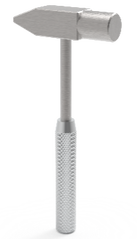
You will learn about: Bench Skills, tools materials, processes, machine skills, as well as related technology theory.
Practical projects include: a metal pin hammer, wooden train and a wooden £ plastic trinket box
Assessment: Question paper: 30% Course Assignment: 70%
Career opportunities: https://www.planitplus.net/CareerAreas/View/9
Practical projects include: a metal pin hammer, wooden train and a wooden £ plastic trinket box
Assessment: Question paper: 30% Course Assignment: 70%
Career opportunities: https://www.planitplus.net/CareerAreas/View/9
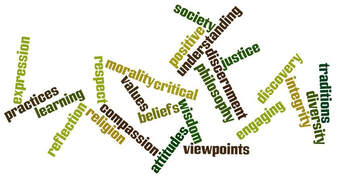
RMPS (Religious, Moral and Philosophical Studies)
If you enjoyed RME in S1 and S2, you can choose to study RMPS in more detail in our S3 elective course.
Students who choose to study RMPS in S3 will further develop their knowledge and skills at Level 4. People who study RMPS learn important skills such as listening, researching and evaluating which are of relevance in a wide range of subject areas. RMPS also provides an opportunity for individuals to explore their own beliefs and values, and to develop an appreciation of the beliefs and values of others.
Course structure
Unit 1: Philosophical Questions
- Philosophy can help us to think about the big questions in life. Students will learn about ancient Greek philosophers and important topics
such as personal identity, the problem of evil and suffering and artificial intelligence
Unit 2: Islam
- Students have an opportunity to learn about what Muslims believe and do. They will also learn about the rise of Islamophobia in today’s society and the impact of this.
Unit 3: Morality and Conflict
- Students will learn the moral issues raised by conflict and evaluate religious and non-religious views associated with this moral issue.
If you enjoyed RME in S1 and S2, you can choose to study RMPS in more detail in our S3 elective course.
Students who choose to study RMPS in S3 will further develop their knowledge and skills at Level 4. People who study RMPS learn important skills such as listening, researching and evaluating which are of relevance in a wide range of subject areas. RMPS also provides an opportunity for individuals to explore their own beliefs and values, and to develop an appreciation of the beliefs and values of others.
Course structure
Unit 1: Philosophical Questions
- Philosophy can help us to think about the big questions in life. Students will learn about ancient Greek philosophers and important topics
such as personal identity, the problem of evil and suffering and artificial intelligence
Unit 2: Islam
- Students have an opportunity to learn about what Muslims believe and do. They will also learn about the rise of Islamophobia in today’s society and the impact of this.
Unit 3: Morality and Conflict
- Students will learn the moral issues raised by conflict and evaluate religious and non-religious views associated with this moral issue.
Watch the RMPS Promo Video
Travel and Tourism
Travel and Tourism allows students to independently research tourist destinations in Scotland and around the world. Students will also investigate the impact of different types of tourism in a range of environments and locations. Students will also be introduced to employability and customer service skills throughout the course.
Each topic allows for individual research and the development of skills which are relevant to the travel industry. Investigative work, research projects and ICT where appropriate, are important features of this course.
Travel and Tourism allows students to independently research tourist destinations in Scotland and around the world. Students will also investigate the impact of different types of tourism in a range of environments and locations. Students will also be introduced to employability and customer service skills throughout the course.
Each topic allows for individual research and the development of skills which are relevant to the travel industry. Investigative work, research projects and ICT where appropriate, are important features of this course.







